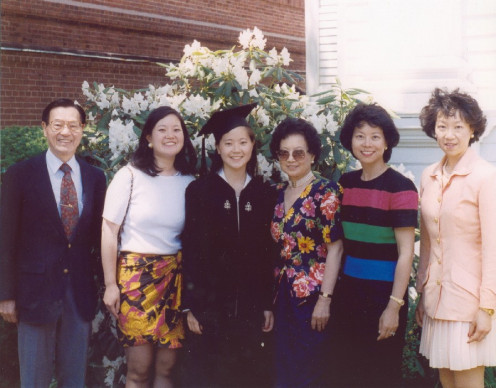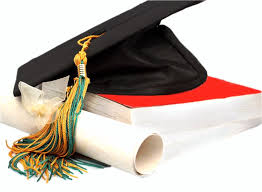The Power of Parents to Inspire their Children to Pursue a Lifetime of Learning
Education begins in the home
The stark realities of low academic achievement, high illiteracy rates—even in "wealthy" countries—the lack of trained scientists, mathematicians and high-tech professionals to sustain a society's successful functioning in the future fueled calls to action across the developing world. Educational institutions, funders, schools boards, researchers, government agencies and the corporate sector combined their efforts and began working collaboratively on identifying and implementing innovative, research-based solutions to improve educational achievements. Their efforts have produced a number of creative and successful strategies to prepare tomorrow's workforce, such as online learning, individualized lesson plans, and charter/focus schools. While notable and certainly necessary, the paramount predictor of success in the classroom is the value for and commitment to education that is instilled in the child by his parents.

Education begins in the home. This aspect of education reform must be nurtured. Studies show that if the parent is involved in the child's education and expresses high expectations for the child's success, there is a direct benefit to the child's educational success.
"The Impact of Parental Involvement, Parental Support & Family Education on Pupil Achievements and Adjustment: A Literature Review" by Professor Charles Desforges presents a number of findings on the topic of parental involvement in the child's education. Parental involvement is defined as providing a stable and safe home environment, engaging in intellectually stimulating activities, communicating with the child, modeling educational values and setting high aspirations. Further, it is noted that the more intimately involved are the parents with the educational institution, the more successful is the child. Various governmental agencies have focused efforts on outreach to parents, to educate, train and prepare them to be a foundation of support for their child's academic success.
My parents believed strongly in the transformative power of education and they lived this reality in their own personal and professional lives, as well as imbuing each of their daughters with our own inner appreciation of and drive to obtain the best education possible. Their commitment and conviction in the essentiality of educational achievement in order to succeed in the world guided their philanthropic activities. They established multiple family foundations whose missions are to open the doors to high-quality education to all capable students, from all backgrounds, regardless of economic means. Their newest foundation is the Ruth Mulan Chu Chao and James Si-Cheng Chao Fellowship Fund which was established at Harvard University in October, 2013.

Asian-American academic achievement exceeds that of their peers
My family, inspired by my incredible parents, Dr. James S.C. and Ruth Mulan Chu Chao, is representative of many Asian-American families who believe strongly in the importance of education. This commitment and internal support structure within the home is reflected in the high academic achievement of Asian-American students. Last year, the PEW Foundation reported that Asians exceed all racial groups in the US in terms of educational advancement and earning power. According to the study, 49% of Asian-Americans earned a college degree whereas in the rest of the population, only 28% earned a college degree. (PEW Foundation: "The Rise of Asian-Americans") This high regard for education and strong family values is embedded in the culture that Asian immigrants bring with them from their home countries. The study found that Asian-Americans are wealthier, more educated, value work, and are employed in higher paying jobs, such as the sciences, engineering and medicine. Asian parents stress the absolute necessity of a university education, setting this as the priority achievement in life. Asians have a long history of academic excellence and cultural expectations for success. Immigrant Asian-American parents, particularly, draw from their own childhood experiences. The Pew study also points to the culture of honoring tradition and family, which prompts Asian-American children to work harder at excelling in school to meet their parents' expectations.
Relationship between parental involvement and academic achievement
Many studies have examined this symbiotic relationship between parental attitudes toward education and a child's academic success. The Department for Children, Schools and Families in the UK, for instance, in their report, "The Impact of Parental Involvement on Children's Education," found that parental involvement from the earliest ages significantly impacts the child's educational achievement. It found further that time spent learning together as a family dramatically improved their child's performance in the core subjects of reading, writing and mathematics. A Michigan Department of Education study on parental involvement, as reported in a 2013 Global Post issue, found that when parents are involved in their child's school work, such as reading together with their child, children have greater educational success, higher attendance rates and improved self-esteem. The level of parental expectations greatly influences the child's performance. If the parent sets high expectations for their child to succeed in school and demonstrates appreciation for each success, the child will do better.

Parents serve as role models for their children. Children look to their parents to guide them and inspire them to succeed. My parents were amazing role models and a deep wellspring of inspiration for all of us. By building a foundation in the home, parents can be the transformative agent in their child's future. Parents are strategically positioned to most readily identify and nurture their child's strengths and unique learning styles, and working together with educational institutions, they can help to design and support an educational approach that will guarantee the child's success in education and life.
Therefore, it is of paramount importance to combine the traditional US academic approach of advancing education through technology with a renewed emphasis on the influential role of parents to inspire their children toward a lifetime of learning. In this way, we can reverse declining academic achievement and create a sustainable future for individuals and societies throughout the world.
Education Inspirational Speech for Parents by Khang Tuong Nguyen
Is parental involvement important in a child's education?
More resources:
- The Best Parental Attitude to Make Kids Appreciate Education | Everyday Life - Global Post
Parents have an important role in helping their kids appreciate their education and fulfill their potential. Children are influenced by their parents' attitudes and beliefs, so they will benefit ...
More about Angela Chao
- How the Educational Establishment Is Embracing Technology
A nation's future prosperity depends upon a well-educated population - About Chao Center - Harvard Business School
Ruth Mulan Chu Chao Center was made possible through the support of Dr. James Si-Cheng Chao and Family Foundation and is a tribute to the life and legacy of the family matriarch, the late Ruth Mulan Chu Chao - Angela Chao on Facebook
- Angela Chao - Professional Profile
Angela Chao has taken control of his online presence by opening a LookUpPage . Join Angela Chao on LookUpPage - it’s quick, free and easy to use.








